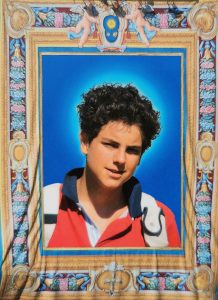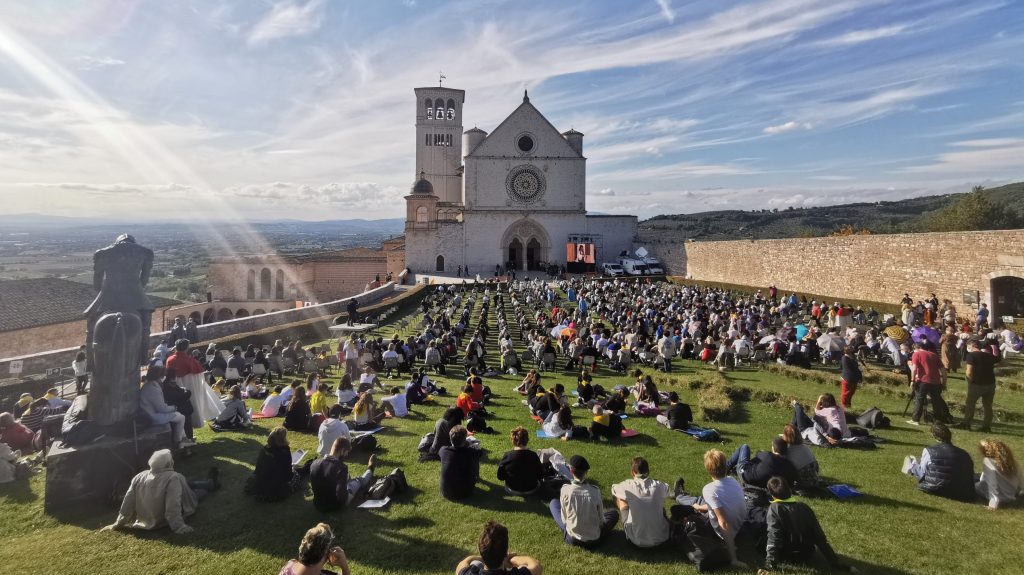Pope Francis said Sunday that the life of Blessed Carlo Acutis provides a witness for young people that true happiness is found when one puts God first.
“Yesterday in Assisi, Carlo Acutis, a fifteen-year-old boy in love with the Eucharist, was beatified. He did not settle into comfortable inaction, but grasped the needs of his time because in the weakest he saw the face of Christ,” Pope Francis said in his Angelus address Oct. 11.
“His witness shows today's young people that true happiness is found by putting God first and serving Him in our brothers, especially the least. Let’s make a round of applause for the new young Blessed,” the pope told the pilgrims gathered in St. Peter's Square.
Blessed Carlo Acutis, a Catholic teen with an aptitude for computer programming and a great devotion to the Real Presence of Jesus in the Eucharist, became the first millennial to be declared ‘Blessed’ on Oct. 10.

At the age of 15, Acutis was diagnosed with leukemia in 2006. He offered his sufferings for Pope Benedict XVI and for the Church, saying “I offer all the suffering I will have to suffer for the Lord, for the pope, and the Church.”
Pope Francis first presented Acutis as an example for young people in post-syondal apostolic exhortation on young people, Christus Vivit. The pope wrote that Acutis’ provided a model of how young people can use the internet and technology to spread the Gospel.
“It is true that the digital world can expose you to the risk of self-absorption, isolation and empty pleasure. But don’t forget that there are young people even there who show creativity and even genius. That was the case with Venerable Carlo Acutis,” the pope wrote in 2018.
“Carlo was well aware that the whole apparatus of communications, advertising and social networking can be used to lull us, to make us addicted to consumerism and buying the latest thing on the market, obsessed with our free time, caught up in negativity. Yet he knew how to use the new communications technology to transmit the Gospel, to communicate values and beauty.”
In his Angelus message, Pope Francis said that the Church today is called reach the geographical and existential peripheries of humanity where people can find themselves on the margins without hope.
The pope urged people “not to rest in comfortable and routine modes of evangelization and witness of charity, but to open the doors of our hearts and our communities to all because the Gospel is not reserved for a select few.”
“Even those on the margins, even those who are rejected and despised by society, are considered by God worthy of His love,” he added.
The Lord “prepares his banquet for everyone: just and sinful, good and bad, intelligent and uneducated,” the pope said, referencing chapter 22 in the Gospel of Matthew.
“The habit of mercy, which God offers us ceaselessly, is a free gift of his love … And it requires to be received with amazement and joy,” Francis said.
After praying the Angelus, the pope prayed for the victims of violence between Armenia and Azerbaijan, expressing his gratitude that a ceasefire had been reached.
Pope Francis also encouraged all laity, especially women, to exercise Christian leadership by virtue of their baptism.
“We must promote the integration of women in the places where important decisions are made,” he said.
“Let us pray that, by virtue of baptism, the lay faithful, especially women, will participate more in institutions of responsibility in the Church, without falling into the clericalisms that nullify the lay charism and also ruin the face of Holy Mother Church.”

